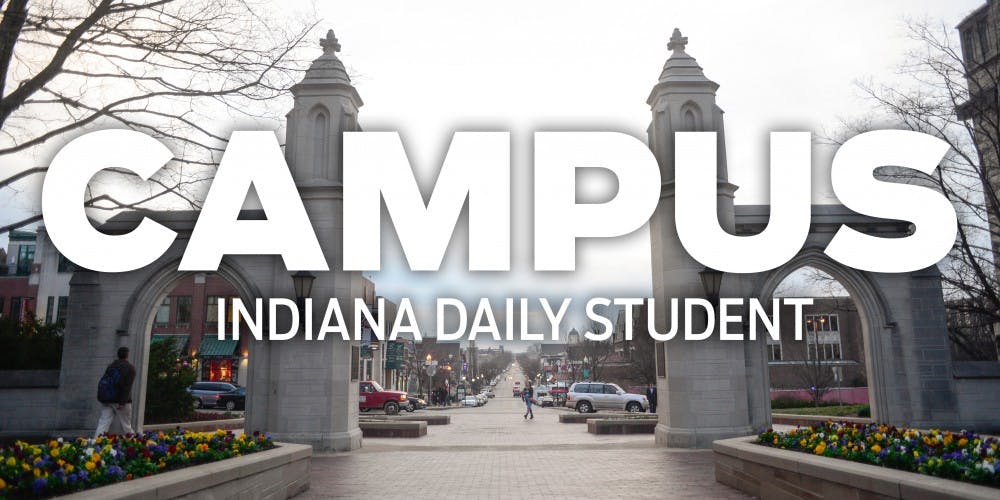After centuries of humans searching for a cure for cancer, IU researchers say it is finally within reach.
As part of IU’s Grand Challenge initiative, the University is gathering scientists and resources from around the country to tackle medical issues, including cancer, in its new precision health initiative.
The initiative lays out a set of goals for IU researchers — one of which is to cure one type of cancer by 2022.
“It’s daunting,” said Mark Geraci, co-investigator and IU Department of Medicine chair. “It looks like it’s a long shot, but we are making progress, and it is within our grasp.”
Geraci said the initiative focuses on three types of cancer — breast cancer, childhood bone cancer and multiple myeloma, which affects the plasma cells in blood.
He said IU has experience in these types of cancer and have made strides toward curing them already.
“If we’re trying to find the most likely cancers we think we can cure, those are our top three,” he said.
Jay Hess, dean of IU’s School of Medicine, said the project will tackle multiple myeloma first because it will likely be the easiest to cure.
This is because certain proteins or antigens associated with cancer are unique to plasma cells, which make up the liquid part of blood.
When these antigens are found, doctors can fight the antigens to eliminate every plasma cell without damaging any other parts of the body.
Doctors can then infuse more plasma into the body to replace the destroyed cells.
But with more solid tumors like breast cancer, it is not that simple.
“It’s hard to find a protein that you can attack for breast cancer that isn’t present elsewhere in the body, so you can’t eliminate all of them because it affects other parts of the body as well,” he said.
As a result, Hess said their holy grail is unique tumor antigens that they can use to target specific areas.
Hess said many recent advances have turned a cure to cancer from a far-flung fantasy to a potential reality. One of these advancements is the ability to efficiently map genomes.
Researchers now are able to find the complete genetic sequences of tumors and identify the mutations in these genes that cause cancer, Hess said. With this information, scientists can develop targeted cancer therapies and maybe even identify cancer-causing mutations before tumors even appear, he said.
“Before there was a genomic understanding of cancer, we were working in the dark,” he said. “We didn’t understand why one cancer would respond differently to treatment than other cancers.”
Geraci said chemotherapies that are specific to the genetic sequences of each tumor can transform cancer treatment. In the past, there were only general chemotherapies that painted each patient with a wide brush, he said.
“Now we can try to have treatment that is more specific to the patient,” he said.
Hess said his team is also making use of immunotherapy advances that target the immune system by building a team of immunotherapy experts and setting up a $30 million cellular immunotherapy center.
Hess said the immune system is not only a body’s defense against infection, but it is also involved with cancer surveillance.
“And now there are drugs available that really turn up the immune system, so that they can seek out these tumor cells and kill them,” he said.
Immunotherapy can also turn cells into trained cancer killers, Hess said. He said cancer cells express abnormal antigens that allow the immune system to identify them.
He said researchers can now take cells from a patient, engineer them to recognize new antigens and then infuse them back into the body to kill the cancer cells that have those antigens.
While curing one cancer can help cure other types of cancer in terms of building general knowledge and resources, Geraci said researchers usually have to start back at square one because each cancer is so different.
Hess said despite this difficulty, they have found the same gene mutation associated with multiple types of cancer. As a result, curing one kind can still be a step toward curing others.
A chemist by training, Carmel Egan, operations director for the project, said she expects it will be a relief and change the lives of doctors to be able to tell their patients that they will be OK because there is a cure or a path to delaying the diseases's progression.
For the patients, she said this effect may be even greater.
“The patient is waiting,” she said. “They are waiting for help, for a cure, and it can be frightening and devastating for the patient and families. To be able to delay the cancer’s progression, and even cure, someone will completely change their lives.”
Hess said a cure to these cancers that were once viewed as impossible to cure, may be possible within the lifetimes of most IU students as researchers combine genetics and immunotherapy.
“There will be successes and failures along the way, but we’ll learn from them,” he said. “I think this is one of the most exciting times in medicine because of the promise that the future holds.”




